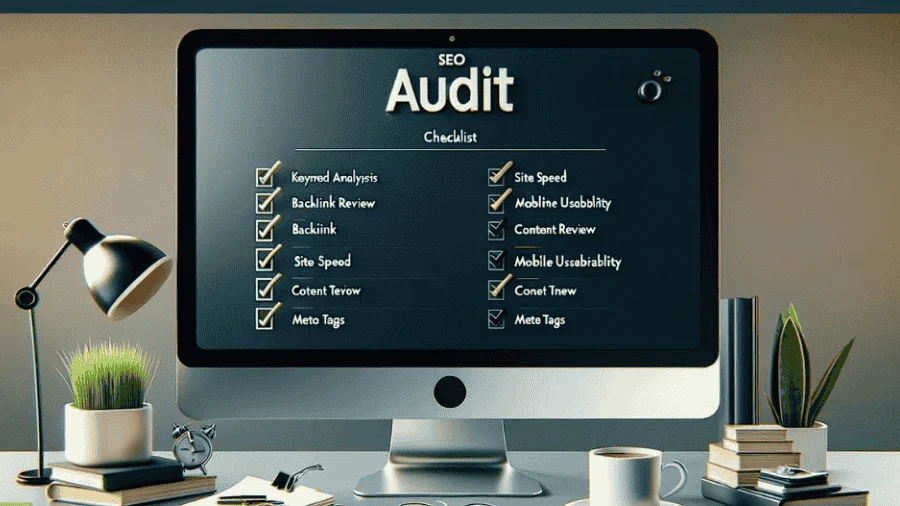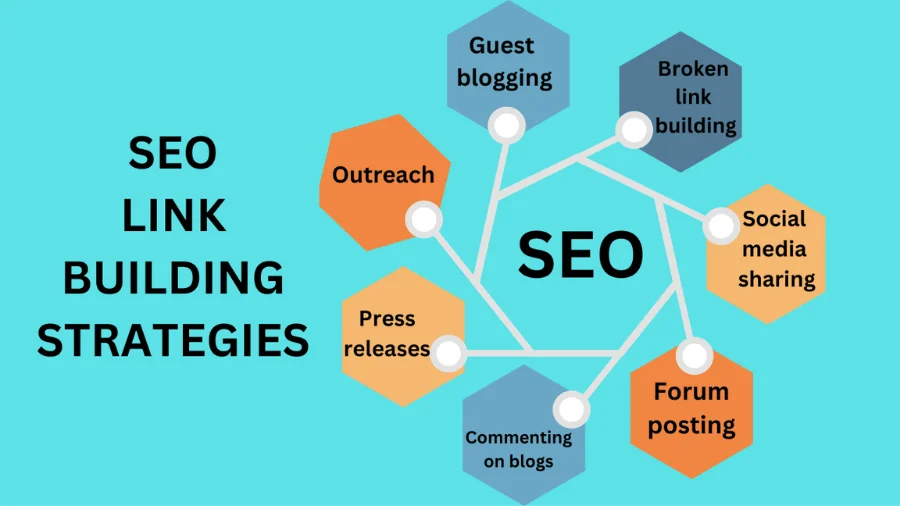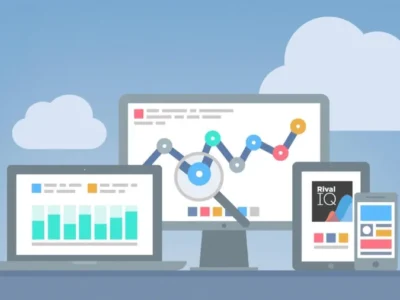SEO for WordPress Websites
Importance of SEO for Websites
Alright, let’s talk SEO – it’s like giving your WordPress site a megaphone to shout out to the digital crowd. It’s the secret sauce behind your website’s visibility and, ultimately, its traffic. With over half of all web traffic coming from folks finding their way through organic searches, getting this SEO thing right means more eyes on your content and potentially more sales. And hey, who doesn’t want a piece of that pie?
For businesses using WordPress, a good SEO game plan means you pop up right where it counts — when people are actually searching for what you offer. That’s like a free front-row seat in the digital theater. Even if you’re a local business, strategic SEO helps you zero in on the right crowd — building trust and sparking those ‘oh, they get me’ moments with your visitors.
Key Elements of SEO
Let’s break down what makes SEO tick, especially for a WordPress site, so we can get your site performing like a rockstar.
| SEO Element | Description |
|---|---|
| Keywords | It’s all about those sweet search terms that get people to your site. Using SEO keyword research tools pretty much finds the gold nuggets for what folks are searching. |
| Content Quality | You want people sticking around, right? Quality content keeps ’em engaged and good rankings keep coming if you don’t let the content go stale. |
| On-Page SEO | Think of this as giving your page a nice outfit – titles, meta stuff, headers – all clinking with the right keywords. Check out the link building strategies for SEO to tidy up those internal connections. |
| Off-Page SEO | This is all that cool stuff happening off the site – like people talking about your site in other places. Dig into off-page SEO techniques for more info. |
| Technical SEO | It’s about making sure the technical gears are well-oiled – sitemaps, robot.txt files, and secure SSL certificates. Dive into SEO tools for website analysis to fine-tune these babies. |
| User Experience | How smooth, how quick, how easy it is for folks to browse your site. Don’t forget mobile-friendliness! Core Web Vitals are key players here. |
| Analytics and Reporting | You wanna know what’s working and what’s not, right? Use the tools and tips in SEO analytics and reporting to keep track of the numbers and trends. |
By getting a grip on these elements, your site not only gets noticed but also loved by search engines and visitors alike. Regular check-ins with an SEO audit help keep things fresh and running smoothly.
Keeping up with WordPress SEO isn’t a one-and-done deal. It needs a little TLC now and then. But the payoff? A site that’s spruced up for your audience, works better, and hits the right notes. For those wanting to dig even deeper, our SEO case studies offer a closer look at making your site the best it can be.
Optimizing On-Page SEO
We all want our WordPress websites to headline the search engine parade, right? Well, to get there, glowing on-page SEO is the secret sauce. Let’s dig into three game-changing moves: strapping on the AIOSEO plugin, sprinkling some schema dust, and jazzing up readability.
Utilizing AIOSEO Plugin
The SEO for WordPress Websites journey becomes a breeze with the All in One SEO (AIOSEO) plugin. Known as the Swiss Army knife of plugins, it’s a game-changer for SEO for WordPress Websites. With over 3 million installations, this plugin has earned its title as a heavyweight champ among SEO tools. AIOSEO simplifies the process, performing detailed check-ups on web pages and providing actionable to-do lists. For anyone focusing on SEO for WordPress Websites, this tool ensures efficiency and consistency all in one package.
Why Give AIOSEO a Go:
| Feature | Why It’s Awesome |
|---|---|
| Automated Analysis | Spots and suggests tweaks for SEO glitches fast |
| Actionable Checklists | Hands you clear cut tasks to jazz up page SEO |
| User-Friendly | Easy peasy to use, even if your grandma’s on it |
Riding with AIOSEO means we’re on top of our SEO game, giving us the edge in the search engine race.

SEO for WordPress Websites
Implementing Schema Markup
Schema markup might sound fancy, but think of it as a translator whispering in search engines’ ears, telling it what our pages are all about. Pulling this off means we boost how our pages show up—say hello to rich snippets and amped-up clicks.
AIOSEO swings open the door to sprinkle schema without needing to decode matrix. Whether it’s an article, product, or review, schema makes our stuff pop.
Bonuses of Schema Markup:
| Schema Type | What It Does |
|---|---|
| Article | Gives blog posts and news articles a lift |
| Product | Showcases details like price and stock info |
| Review | Shine a light on reviews with glittering star ratings |
Giving our site a visibility punch, schema markup isn’t just a VIP guest at the SEO shindig, it’s essential.
Enhancing Readability
Readability holds a crucial spot in the world of SEO for WordPress Websites, as it can significantly impact user satisfaction and interaction rates. AIOSEO plays a vital role by providing actionable tips to enhance content readability. These include shortening text, reducing passive voice, and prioritizing simplicity to make your content more engaging. For anyone focused on SEO for WordPress Websites, improving readability is a key step toward boosting performance and audience retention.
Steps to Up Your Readability Game:
- Snip long-winded sentences and beefy paragraphs
- Break it up with snazzy subheadings
- Let bullet points do the talking
- Swap mind-boggling words for plain Janes
With AIOSEO taking the readability wheel, our text greets readers like an old friend, cutting bounce rates and keeping folks around. Peep our SEO audit checklist for more nifty tips.
By working these three strategies into our WordPress SEO gig, our site becomes an easy, eye-catching web destination that pulls in organic traffic. For some next-level SEO moves, check out our chats on off-page SEO techniques and link building strategies for SEO.
Best Practices for WordPress SEO
To get the most out of our WordPress sites, we gotta stick to some solid SEO practices. This includes thinking about hosting, crafting XML sitemaps, and setting up permalinks right.
Hosting Considerations
Choosing the right hosting provider is a crucial step in optimizing SEO for WordPress Websites. A reliable host ensures fast page loading, minimal downtime, and robust security—essential factors for boosting your site’s performance and rankings. When focusing on SEO for WordPress Websites, these hosting features play a pivotal role in achieving success. Here’s what to look for
- Uptime Promise: Shoot for a host that guarantees at least 99.9% uptime.
- Server Locale: Pick server locations near your audience to speed up loading times.
- SSL (Secure Sockets Layer): Ensure your host offers SSL certificates to create a secure link between your site and its visitors. This is liked by search engines.
| Hosting Criteria | Importance |
|---|---|
| Uptime Guarantee | High |
| Server Locale | Medium |
| SSL Certificates | High |
Creating XML Sitemaps
Creating an XML sitemap is essential for SEO for WordPress Websites, as it ensures search engines like Google Search Console and Bing Webmaster Tools can efficiently understand your site’s structure. An XML sitemap plays a crucial role in speeding up the indexing process, helping search engines capture all your important pages. If you’re working on SEO for WordPress Websites, this step is a must to optimize your site’s visibility and performance.
Here’s how to set up and submit an XML sitemap:
- Get the Sitemap Ready: Use plugins like AIOSEO to auto-generate an XML sitemap.
- Submit to Google Search Console: Once it’s generated, make sure to submit it—let Google know which pages to index.
- Spot Check for Errors: Keep an eye out for any submission errors that might stop pages from getting indexed.

SEO for WordPress Websites
Customizing Permalinks
Permalinks play a vital role in SEO for WordPress Websites, as they are the unique web addresses for your posts and pages. Customizing permalinks not only enhances your site’s SEO potential but also creates cleaner, more user-friendly URLs. A well-structured permalink makes it easier for both users and search engines to understand your content at a glance, which is a key factor in optimizing SEO for WordPress Websites.
Tips for creating better permalinks:
- Keep it Short and Clear: Make URLs concise yet descriptive. Throw in primary keywords that match the page’s content.
- Ditch Special Characters: Use hyphens rather than underscores and skip special symbols.
- Stick to a Pattern: Keep your permalink style consistent across the site.
Example of a solid permalink: https://www.example.com/seo-best-practices
To customize permalinks in WordPress:
- Jump to Settings > Permalinks.
- Choose a Custom Structure.
- Add relevant keywords and steer clear of special characters.
For more insights, visit our section on seo ranking factors.
By sticking to these practices, we can boost our WordPress site’s SEO performance, leading to better visibility and climbing those search engine ranks.
Making Your Website Zip!
Why It Matters for Search Results
Speed is a critical factor in SEO for WordPress Websites, and having a fast-loading site can significantly boost your online visibility. Search engines, especially Google, prioritize speedy websites because they provide users with quick and relevant information. On the flip side, slow websites can drive visitors away and hurt your search rankings—a big no-no in SEO for WordPress Websites.
To stay ahead, aim for load times under 2 seconds. Key metrics like Time to Interactive (TTI) and First Contentful Paint (FCP) help measure how quickly users can start engaging with your content. For anyone serious about SEO for WordPress Websites, optimizing site speed is non-negotiable. Here’s a quick breakdown of how to get it done!
| Metric | Ideal Time |
|---|---|
| Time to Interactive (TTI) | Less than 2 seconds |
| First Contentful Paint (FCP) | Less than 1.5 seconds |
Hitting these targets is like striking gold for your SEO game.
Fine-Tuning for Speed
Getting your site up to speed is more like tuning an old car than rocket science. Here’s how you can grease the gears:
- Trim Down Those Pics: Squash those images down without losing their oomph. Tools like Imagify or Smush are like personal trainers for your pictures.
- Tidy Up Your Code: Streamline by cutting loose anything extra in your HTML, CSS, and JavaScript. Less baggage means faster speeds.
- Speed Up Server Reactions: If your server is taking its sweet time, it drags down that initial connection. A top-notch hosting service can give your site a jump start.
- Use Content Delivery Networks (CDNs): These are like teleportation for your content, whisking it from servers close to your users to cut wait times.
The Cache That Makes a Splash
Ever notice how some websites just pop up ready to go? They’re probably using caching plugins, which stash copies of your website’s files. This trick means your site doesn’t have to start from scratch each time someone visits.
Benefits of caching plugins:
- Quicker Load Times: Cached pages mean the server isn’t sweating bullets for every visitor.
- Lighter Server Load: These plugins let your server kick back and relax a bit.
- Happier Visitors: With fast loading pages, people stick around longer and appreciate the smooth ride.
Caching plugins are a game-changer for SEO for WordPress Websites, with tools like WP Super Cache, W3 Total Cache, and WP Rocket leading the pack. These plugins can turbocharge your site’s performance with just a few clicks, making optimization a breeze.
By implementing these enhancements and utilizing caching plugins, you’ll significantly improve your site’s speed, giving your WordPress website a competitive edge in search engine rankings. For more expert insights and strategies tailored to SEO for WordPress Websites, don’t forget to explore our SEO audit checklist.







